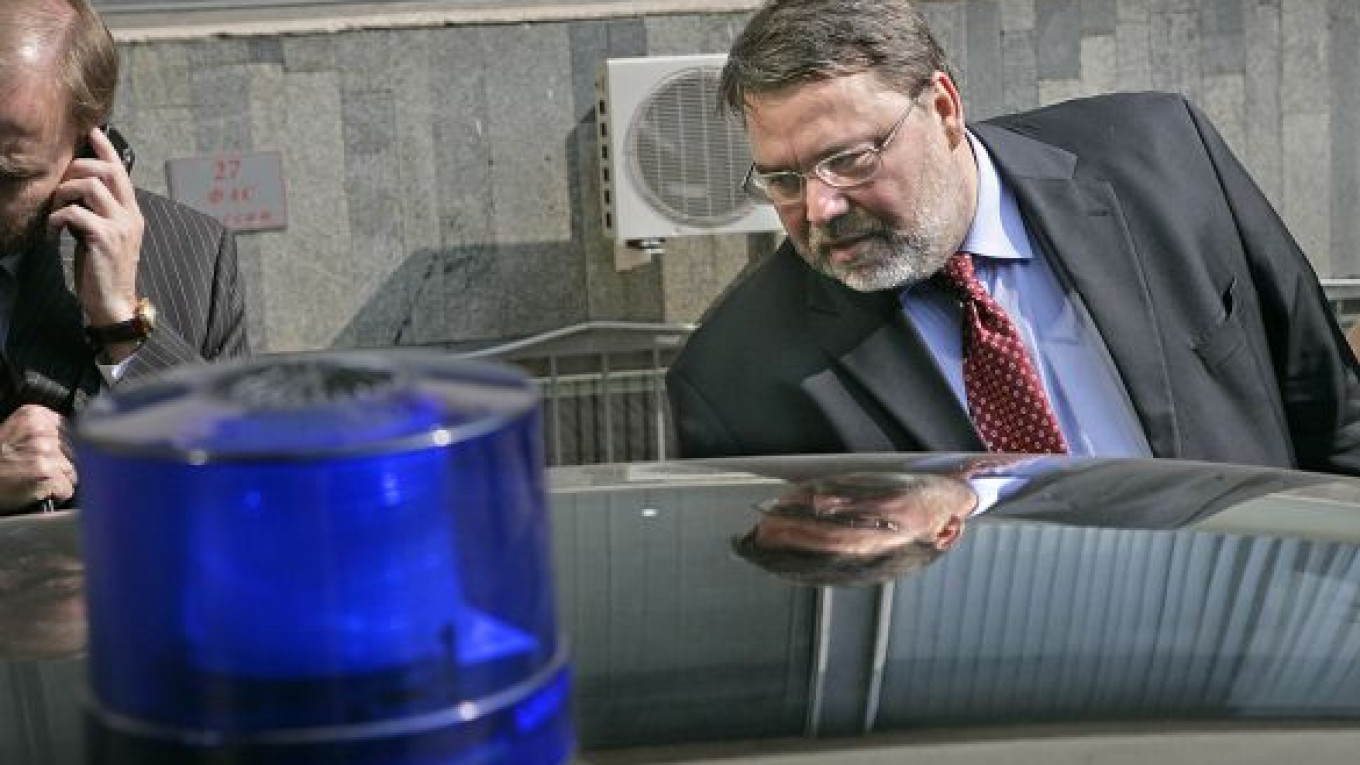Head of the Federal Anti-Monopoly Service Igor Artemyev said Wednesday that foreign businesses operating in Russia should join forces with the watchdog to create a favorable investment climate.
“Our main allies and colleagues are entrepreneurs, whom we must protect,” Artemyev said at a meeting with domestic and foreign companies organized by the Association of European Businesses.
Taking into account that it is governmental bodies that violate the law in half of the cases, the main duty of the Federal Anti-Monopoly Service is to support businesses when the government acts illegally, Artemyev said.
Foreign investors coming to Russia face a number of obstacles and lots of red tape, said attendees at the meeting.
The procedure of agreeing on an upcoming acquisition with the anti-monopoly service, especially when an investor acquires a share in a strategic company, is too complicated and burdensome, said Nikolai Voznesensky, head of the antitrust practice at Goltsblat BLP.
Artemyev promised to ease this procedure and said the service would try to be flexible.
“To fulfill our requests one needs to do a huge amount of analytical work and provide truckloads of documents sometimes. I try to fight against this,” he said, adding that the watchdog makes exceptions if providing certain paperwork is too difficult or costly for a company.
Another matter of concern for foreign companies is signing non-compete agreements when launching joint ventures.
“Such an agreement means that the Russian company will not compete with the joint venture it is launching with the foreign partners,” said Voznesensky, adding that legislation sometimes forbids signing such agreements. A number of investors coming to the Russian market ask how to resolve this, he told The Moscow Times.
Voznesensky also said current legislation prohibits foreign companies from setting an upper limit on the resale price of their goods imported in Russia, but that an amendment being considered by the State Duma would resolve this.
The watchdog is effective in helping foreign investors get access to resources provided by the country’s natural monopolies, like utilities, and protecting foreign companies from unfair competition, Voznesensky said.
The service plans to encourage investments in the construction industry, which is “one of the least attractive” for investors compared with other countries, Artemyev said.
One mechanism that the service proposes is to fine officials who procrastinate on processing documents necessary for getting a construction permit.
“One has to go through all the circles of hell today in order to agree on a project and build something,” Artemyev said.
Prime Minister Vladimir Putin approved the idea, he said, adding that officials, might face a fine of about $1,000 if “the term of considering documents is exceeded by even one day.”
Now legislation sets a 10-day term for giving a construction permit, but in reality it may take up to two years to get it, while the whole procedure of agreeing on project documentation may be even longer, said Vladislav Sourkov, a partner with the CMS law firm.
Obtaining a construction permit is just the last step, with a huge number of procedures preceding it, he said.
But introducing fines for officials is unlikely to be effective if done separately. “The problem is in organizing the work, in qualification of the staff and the red tape. There should be a systemic approach,” Sourkov said.
Artemyev also said long-awaited amendments to the bill on foreign investments in strategic sectors, which were drafted by the anti-monopoly service, had been sent to the government and would be sent to the State Duma soon.
A Message from The Moscow Times:
Dear readers,
We are facing unprecedented challenges. Russia's Prosecutor General's Office has designated The Moscow Times as an "undesirable" organization, criminalizing our work and putting our staff at risk of prosecution. This follows our earlier unjust labeling as a "foreign agent."
These actions are direct attempts to silence independent journalism in Russia. The authorities claim our work "discredits the decisions of the Russian leadership." We see things differently: we strive to provide accurate, unbiased reporting on Russia.
We, the journalists of The Moscow Times, refuse to be silenced. But to continue our work, we need your help.
Your support, no matter how small, makes a world of difference. If you can, please support us monthly starting from just $2. It's quick to set up, and every contribution makes a significant impact.
By supporting The Moscow Times, you're defending open, independent journalism in the face of repression. Thank you for standing with us.
Remind me later.






